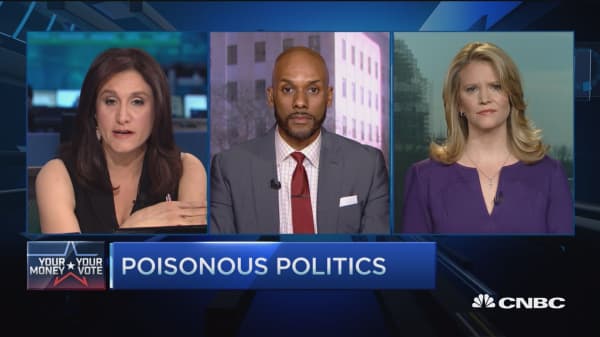The past 10 months have brought many long simmering political trends to the surface of our democracy. It's clear many of the usual truths and typically predictable outcomes don't apply this year. Donald Trump and Bernie Sanders, and their supporters, have turned politics on its head.
But one of the most striking findings this cycle is just how much Bernie Sanders and Donald Trump have in common. And, with this, comes enormous implications for Wall Street and nearly all big businesses.








